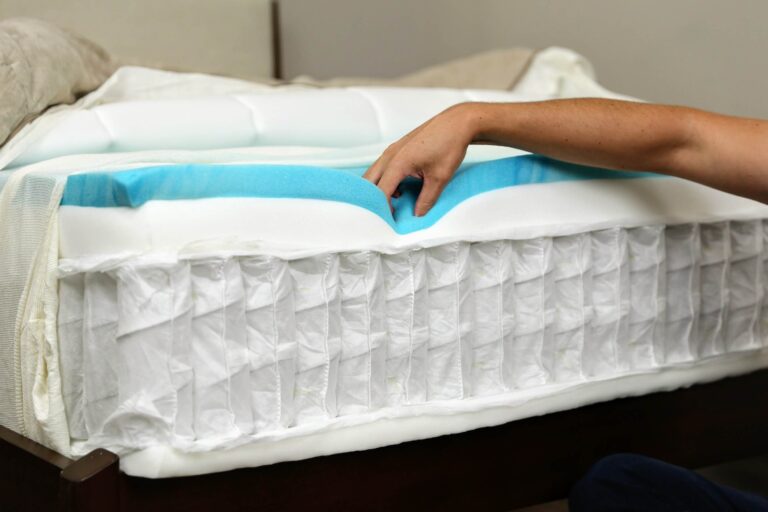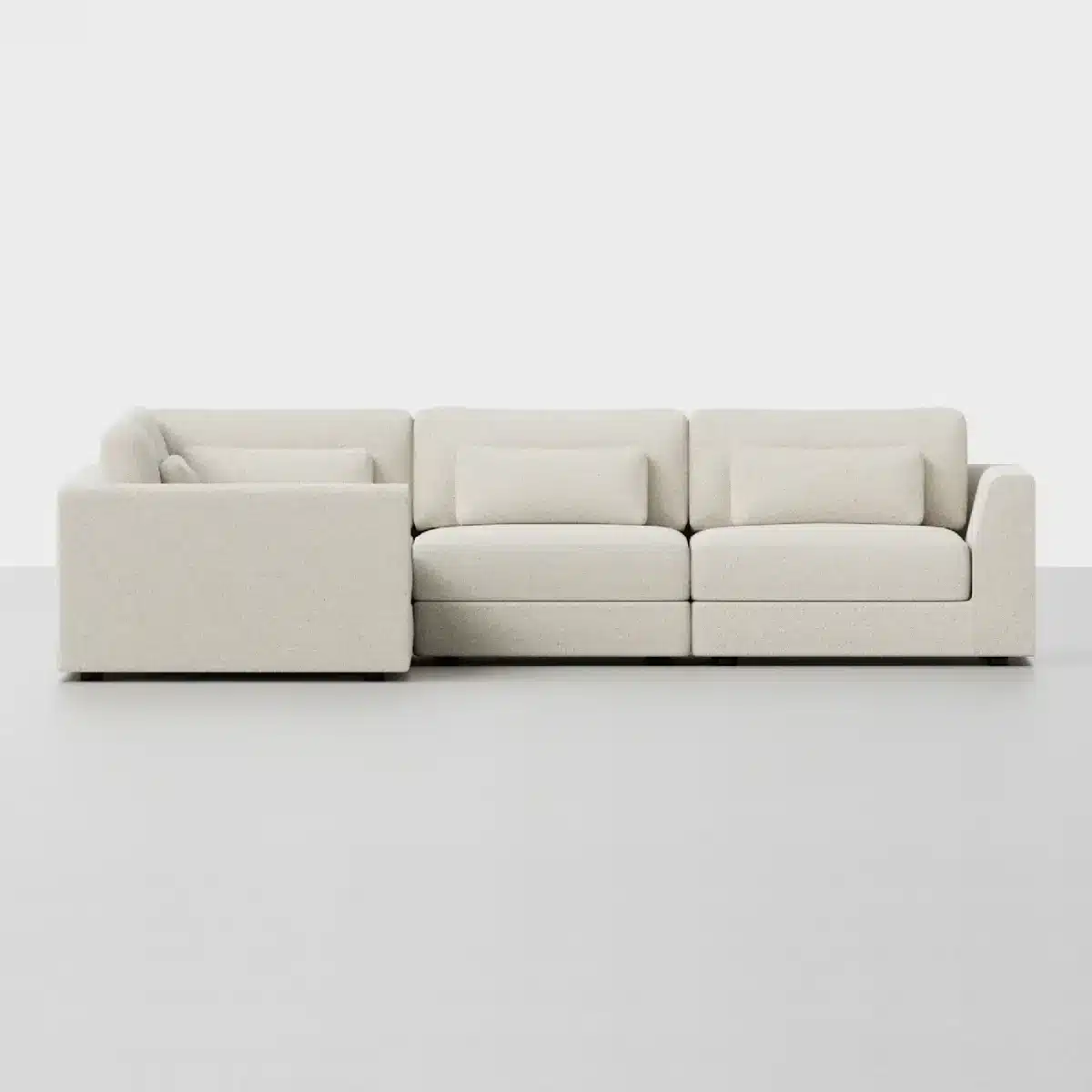The Ins and Outs of Lull vs. DreamCloud Mattress Brands
Choosing Between Lull and DreamCloud: What You Need to Know
When it comes to the Lull vs. DreamCloud mattress debate, understanding the key differences between these two popular brands can lead you to the optimal choice for your sleep needs in 2025. Your decision largely hinges on whether you prefer the feel of a hybrid mattress or an all-foam option.
DreamCloud: Best suited for couples, hot sleepers, and back sleepers, this hybrid mattress features a unique combination of foam and coils for balanced support.
Lull: This budget-friendly all-foam mattress caters to lightweight to average-weight sleepers, providing a supportive experience without breaking the bank.
I’m Ben Trapskin, founder of Yawnder, and I aim to empower you with knowledge from my extensive experience in mattress evaluations. Let’s explore the nuances of each brand and help you arrive at an informed decision.
DreamCloud vs. Lull Overview
DreamCloud Mattress
The DreamCloud mattress stands out with its hybrid construction, elegantly merging memory foam with innerspring coils.
– Hybrid Construction: Features gel-infused foam layered atop a robust innerspring coil base, creating an ideal environment for comfort and support.
– Medium-Firm Feel: Rated at 6.5/10 on the firmness scale, it caters well to back sleepers and hot sleepers who need a touch of cushioning.
– Cooling Technology: The gel-infused foam sustainably dissipates heat, making for a cooler night’s sleep.
– Ideal for Couples: Exceptional motion isolation and edge support allow partners to move freely without disrupting one another’s sleep.
Lull Mattress
On the other hand, the Lull mattress is crafted to provide immense value, especially for budget-conscious shoppers who seek quality and comfort.
– Memory Foam Construction: Incorporates multiple foam layers, including a high-density support base for durability.
– Medium-Firm Feel: Rated at 7/10, it offers consistent support for lightweight to average-weight sleepers.
– Budget-Friendly: Designed to deliver premium features at an attractive price.
– Pressure Relief: Excellent spinal alignment makes it ideal for back and stomach sleepers under 230 lbs.
Overall, each mattress serves distinctive needs: DreamCloud excels for couples and those who overheat during sleep, while Lull is perfect for budget-savvy individuals seeking pressure relief.
Key Similarities Between DreamCloud and Lull
Despite their differences, both mattresses possess similarities that enhance their appeal to diverse sleepers:
– Responsiveness: Both models offer a slight bounce, making position changes during sleep smooth and effortless.
– Back Sleepers: Ideal for those weighing less than 230 lbs, both mattresses provide balanced comfort, promoting spinal alignment to prevent back pain.
– Stomach Sleepers: Their medium-firm characteristics ensure that stomach sleepers’ hips stay in line with their spines, maintaining crucial alignment.
– Lifetime Warranty: A standout feature of both brands is their lifetime warranty, ensuring buyers are covered against defects for the lifespan of the mattress.
– Medium-Firm Feel: The versatility of both mattresses makes them accommodating for various sleeping positions and body types.
Key Differences Between DreamCloud and Lull
Understanding the pivotal distinctions between DreamCloud and Lull will further guide your decision-making process.
Mattress Height
– DreamCloud: Stands at a generous 14 inches, offering a substantial profile due to its multiple layers, providing ultimate comfort.
– Lull: More compact at 10 inches, making it easier to handle and ideal for smaller spaces.
Temperature Regulation
Both mattresses tackle overheating, but their methods vary:
– DreamCloud: Gels infused in the foam, paired with a coil base, enhance airflow for exquisite temperature management.
– Lull: While its gel-infused foam delivers cooling capabilities, its all-foam makeup doesn’t support airflow as effectively as DreamCloud.
Support Layers
– DreamCloud: Features a combination of coils and foam that adds durability while ensuring optimal comfort.
– Lull: A high-density foam base offers solid support, though it lacks the bounce and ventilation provided by coils.
Price Comparison
Pricing significantly diverges between the brands:
– DreamCloud: Typically priced higher, a Queen model retails around $1332, reflecting its premium hybrid construction and cooling features.
– Lull: With a Queen priced at $1199, Lull remains an appealing option for those on a budget.
Firmness, Feel, and Sleeping Experience Differences
Firmness Levels
– DreamCloud: Medium-firm feel (6.5/10), balancing comfort and support across various sleeping positions.
– Lull: Slightly firmer (7/10), provides added support for back and stomach sleepers needing more rigidity.
Sleeping Experience
– Back Sleepers: Both mattresses offer ample lumbar support. While DreamCloud’s softness aids in gentle contouring, Lull provides firmer support for spinal alignment.
– Stomach Sleepers: While both offer adequate support, Lull’s firmer feel may assist in keeping hips elevated, preventing undue strain on the back.
– Side Sleepers: While both mattresses may be too firm for some side sleepers, DreamCloud offers moderate cushioning thanks to its hybrid design.
Performance Ratings
In analyzing Lull vs. DreamCloud, performance ratings reveal notable strengths.
Temperature Control
The DreamCloud mattress excels with its superior cooling technology, significantly outperforming Lull’s mixed foam construction ideal for average sleepers.
Motion Transfer
DreamCloud offers exceptional motion isolation due to its coils and foam layers, ideal for couples. Lull, whilst effective, may not isolate motion as effectively despite its solid foam design.
Edge Support
DreamCloud’s reinforced coils provide reliable edge support, making it easier to utilize the full sleeping surface. Lull offers decent support but may not match DreamCloud’s firmness.
Pressure Relief
While both brands assist those under 230 lbs, DreamCloud is more effective for heavier individuals due to its hybrid build.
Pricing and Value
DreamCloud Pricing
DreamCloud positions itself at the higher end of the spectrum:
– Twin: $839
– Queen: $1332
– King: $1669
Investing in DreamCloud guarantees a luxurious experience, well worth the cost for enhanced durability, temperature regulation, and comfort.
Lull Pricing
Lull offers budget-friendly pricing:
– Twin: $755
– Queen: $1199
– King: $1699
This affordability grants essential comfort features without compromising quality, making it attractive for budget-conscious shoppers.
Value for Money
Each brand yields good value, catering to different preferences. DreamCloud justifies its price through superior construction, while Lull fulfills quality and comfort needs at lower costs.
Shipping, Returns, and Warranties
DreamCloud Policies
DreamCloud provides free shipping within the contiguous U.S., with a 365-night sleep trial and a lifetime warranty covering significant body impressions.
Lull Policies
Similar to DreamCloud, Lull offers free shipping and a 365-night trial. Its lifetime warranty mirrors DreamCloud’s, ensuring the longevity of your investment.
Conclusion
In navigating the Lull vs. DreamCloud comparison, your personal sleep needs and budget will guide your decision. DreamCloud’s hybrid construction is ideal for those seeking luxury and cooling benefits, while Lull provides excellent value for those in search of affordability.
Both mattresses, boasting extensive warranties and trial periods, allow you to make a choice without risk. Understanding these brands’ nuances enables you to enhance your sleep experience, securing the best possible product for your future nights. Whether you lean toward DreamCloud’s premium allure or Lull’s budget-friendly comfort, the right mattress can dramatically improve the quality of your sleep.


















